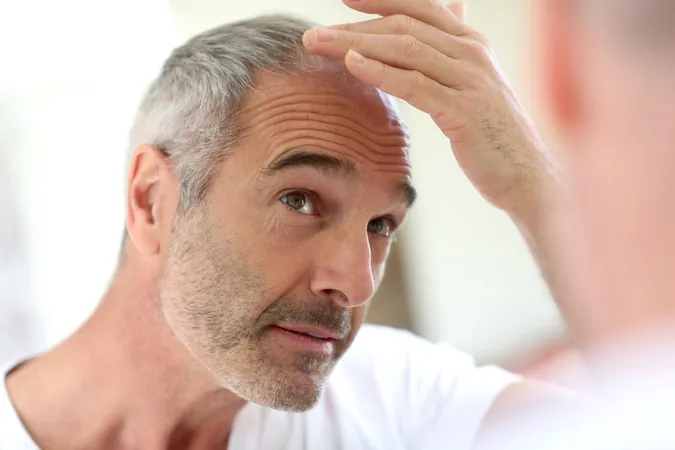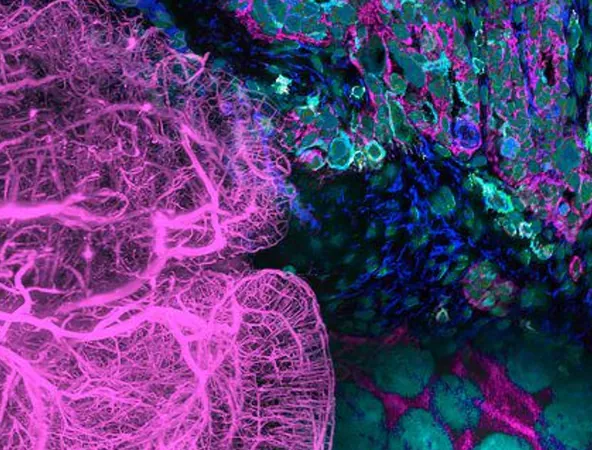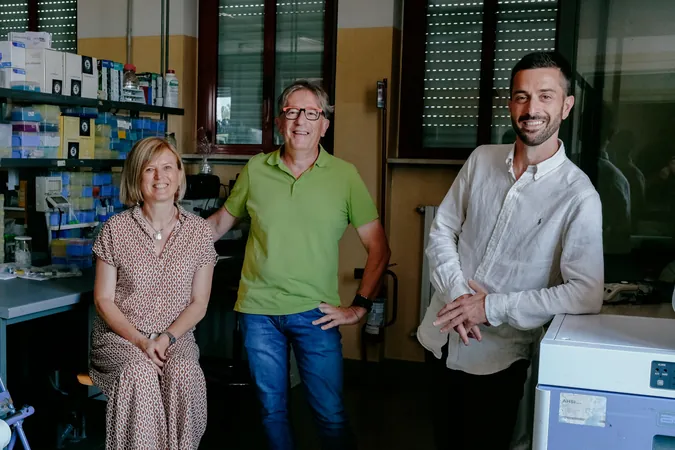
Revolutionary Sugar-Based Gel Could Be the Game-Changer for Hair Loss Sufferers!
2025-01-12
Author: Jacques
Introduction
Hair loss is an issue that plagues millions globally, affecting self-esteem and personal image for both men and women. The most prevalent form, hereditary-pattern baldness, has left many searching for effective solutions, but the options in the market are often limited and accompanied by harsh side effects. However, a groundbreaking new development involving a naturally occurring sugar may just be the answer many have been waiting for.
The Discovery of Deoxyribose
Researchers from the University of Sheffield and COMSATS University stumbled upon this potential miracle while investigating deoxyribose, a sugar crucial for DNA structure, during their studies on wound healing. To their surprise, they found that mice treated with deoxyribose exhibited accelerated fur regrowth on skin wounds—a finding that sparked further curiosity.
Testing the Gel on Hair Loss
To test the possibility of promoting hair growth, the team explored the effects of the sugar-based gel on male mice with testosterone-driven hair loss, a common model used to simulate male-pattern baldness. The results were nothing short of astonishing: within weeks, the treated areas showed significant hair regrowth with thicker and longer strands, comparable in effectiveness to minoxidil—an FDA-approved topical solution widely used for treating hair loss.
Safety and Efficacy of the Gel
What makes this new gel particularly exciting is its safety profile. Unlike traditional treatments like minoxidil and finasteride, which can come with unwanted side effects like decreased libido and mood changes, the deoxyribose gel is non-toxic and biodegradable, working with the body’s natural processes. By enhancing blood flow to hair follicles, it promotes hair growth without the drastic side effects associated with conventional medications.
Current Market Landscape
Current solutions on the market often fall short. While minoxidil offers partial success, its inconsistent performance leaves many patients frustrated. Finasteride may be more reliable but is often overshadowed by troubling side effects, creating a pressing need for more effective and safer alternatives. This new gel could be the key to filling that void.
Future Implications
Excitingly, these findings are still in their early stages. Should further studies confirm these promising results in humans, we may soon witness a pivotal shift in hair loss treatments. This innovative gel could offer hope not only to those struggling with hereditary hair loss but also to individuals with conditions such as alopecia and hair loss resulting from chemotherapy.
Conclusion
The quest for effective hair loss treatment could soon reach a crescendo as this sugar gel paves the way for more natural, safer solutions. Keep an eye on the future of hair restoration—this might just be the breakthrough we've all been waiting for!









 Brasil (PT)
Brasil (PT)
 Canada (EN)
Canada (EN)
 Chile (ES)
Chile (ES)
 Česko (CS)
Česko (CS)
 대한민국 (KO)
대한민국 (KO)
 España (ES)
España (ES)
 France (FR)
France (FR)
 Hong Kong (EN)
Hong Kong (EN)
 Italia (IT)
Italia (IT)
 日本 (JA)
日本 (JA)
 Magyarország (HU)
Magyarország (HU)
 Norge (NO)
Norge (NO)
 Polska (PL)
Polska (PL)
 Schweiz (DE)
Schweiz (DE)
 Singapore (EN)
Singapore (EN)
 Sverige (SV)
Sverige (SV)
 Suomi (FI)
Suomi (FI)
 Türkiye (TR)
Türkiye (TR)